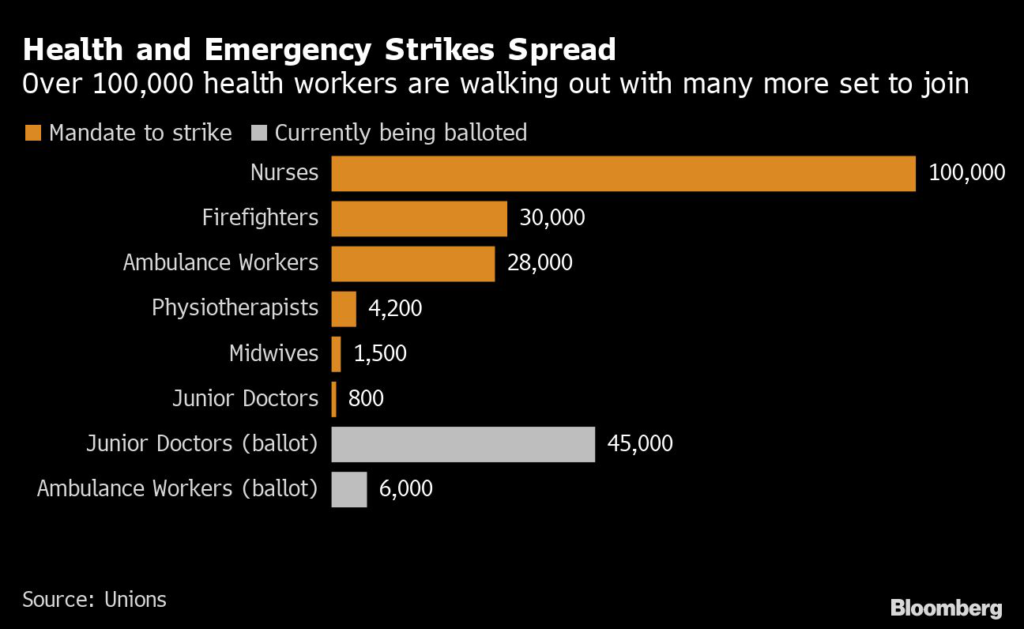UK firefighters voted to strike over pay and conditions, adding to a snowballing wave of industrial unrest that’s swept through the British workforce.
(Bloomberg) — UK firefighters voted to strike over pay and conditions, adding to a snowballing wave of industrial unrest that’s swept through the British workforce.
Some 88% of the 30,000 firefighting staff represented by the Fire Brigades Union across England, Wales and Scotland voted in favor of striking, according to a statement on Monday from the FBU. In Northern Ireland 94% of members voted for strikes.
If walkouts go ahead, it would be the first national strike by firefighters in two decades, piling further pressure on Prime Minister Rishi Sunak’s administration, which is already grappling with industrial action by nurses, ambulance staff, teachers and civil servants. A round of government talks with teaching unions on Monday broke up without resolution, leaving teachers set to strike on Wednesday.
“This strike action will be disappointing and concerning to the public,” Sunak’s spokesman, Max Blain, told reporters on Monday, referring to the vote by firefighters. He also described the planned teachers’ strike as “very disappointing,” and said the government wants schools to stay open “wherever possible.”
Teaching unions criticized the government after the talks on Monday, with the National Education Union saying ministers had “squandered an opportunity to avoid strike action.” The NASUWT, another teaching labor group said the “lack of real progress remains of concern” and called for the government to engage in “meaningful dialog.”
‘Credible Offer’
A third union, the ASCL, blamed the Treasury for the lack of progress in the pay dispute. Britain’s finance ministry has so far stood firm in its resolve not to alter pay settlements for the current fiscal year.
Teaching unions argue that the 5% pay rise offered to most teachers fails to keep pace with inflation at more than 10%, while saying a 20% cut in real terms over the past decade has led to a staff exodus. Firefighting staff are also seeking a bigger pay rise than the 5% offered in October — which represents a cut in real terms.
“Firefighters were among Britain’s Covid heroes who kept front-line services going during the pandemic,” FBU General Secretary Matt Wrack said in a statement. “The prime minister has badly misjudged the public mood by imposing pay cuts on key workers.”
A meeting is scheduled on Feb. 8 with employers and the union said no strikes would be call until after that meeting. The union added that the government and employers can avoid strikes by making a “credible offer.”
Unions have started coordinating more of their industrial action in an attempt to convince the government to negotiate higher pay for the current fiscal year. As many as 100,000 civil servants will strike on Feb. 1 alongside teachers, university staff and train drivers. Meanwhile. ambulance workers, 999 call handlers and nurses are set to stand side-by-side on picket lines for the first time on Feb. 6 in an escalation of their campaign against below-inflation raises.
–With assistance from Emily Ashton.
(Adds comments from teachers’ unions in paragraphs 5 and 6)
More stories like this are available on bloomberg.com
©2023 Bloomberg L.P.










